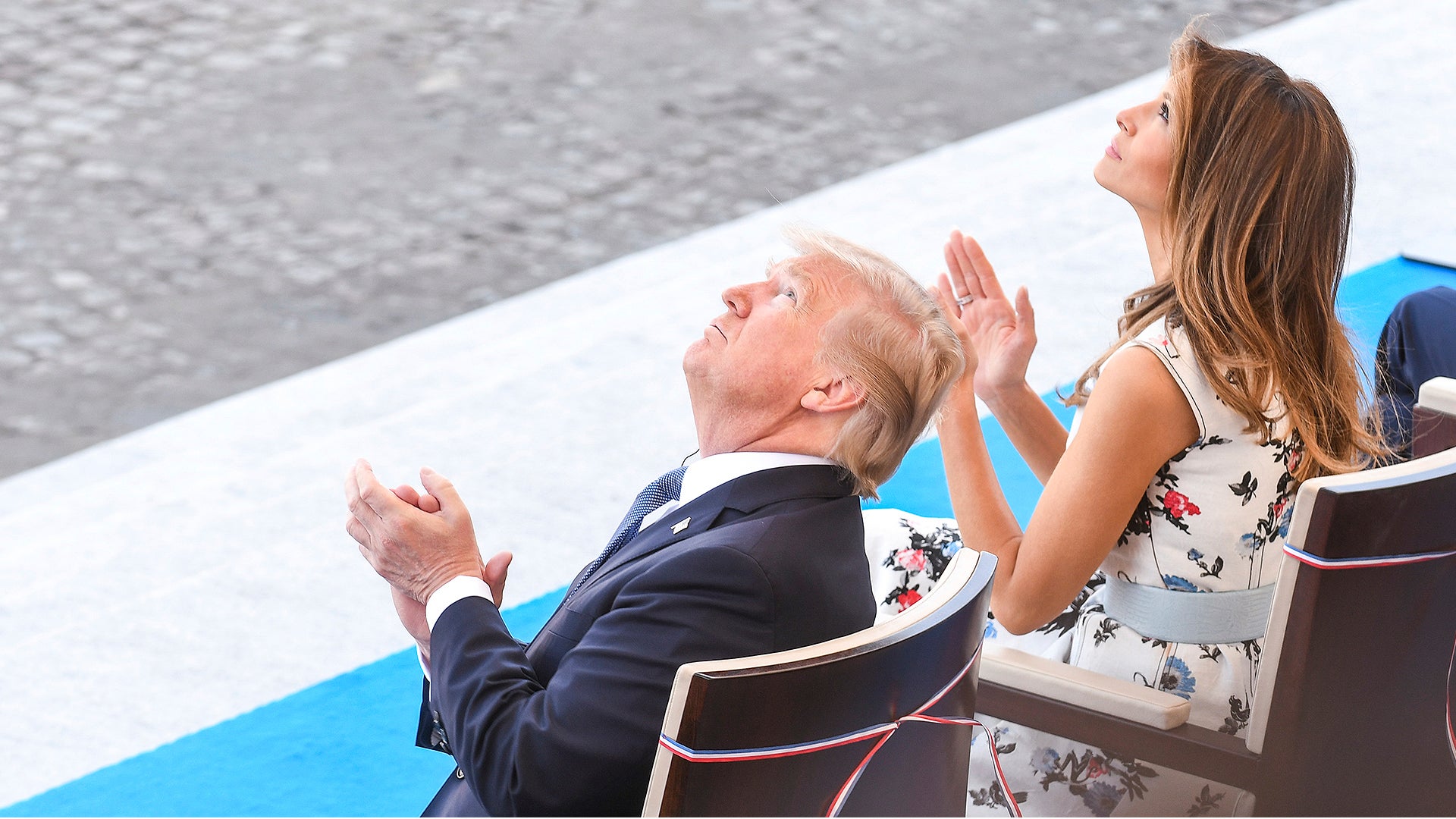Trump’s highly controversial military parade has continued to suck up headlines, but this time around it’s because of reports stating its price supposedly ballooned from around $15M to potentially over $90M. Previous statements against the show of military might morphed into fevered screams of rejection following these new projected cost estimates, which set off a chain of events that would end in Trump canceling the Veteran’s Day military review—at least for now.
But what came before Trump tweeted that he was putting his parade plans on the back-burner was an avalanche of bad press, including reports on the President’s beloved Fox And Friends broadcast, stating that the parade’s costs had soared out of control. We know that Trump makes snap proclamations and decisions based on what he sees on television, so maybe his tweet that announced the postponement of the parade was all but a sure thing once the package aired of Fox News early this morning.
But the thing is that those numbers could be totally incorrect. In fact, the one person that should know what the estimates are is Secretary of Defense James Mattis who had been getting them sent to him for personal review. The decorated retired Marine general slapped down the $90M report while en route to South America aboard an E-4B in far more candid terms than we are accustomed to hearing him use:

But as the whirlwind of evolving reporting and hot takes mounted, Trump threw in the towel, Tweeting early in the morning:
The mayor of Washington DC, who appears to be no fan of Donald Trump, posted that it would run $21.6M for security and support for the parade in a somewhat snarky tweet. This may be true, but even with this number factored in I am skeptical that the parade would cost a number approaching $90M.
Yes, military hardware is expensive to move around and operate, and especially combat aircraft. But blowing that level of money on a parade seems nearly impossible. Even if you split the costs in half between military expenses and security and event support costs, $45M for the military’s participation in the parade is nearly unthinkable.
You could fly an F-16 for roughly 2,050 hours for that dollar figure. Lining up some warbirds, a good mix of current American air power, including high-end assets like the B-2 bomber and E-4B flying command post to do a flyby, along with formations of tactical aircraft, most of which are based in the region, and rolling some vehicles and marching a bunch of soldiers down Pennsylvania Avenue won’t cost the DoD anywhere near $45M. And what people don’t understand is these same assets spread out to air shows across the United States every weekend for roughly nine months out of the year already.
I think it would also be interesting to review the cost estimates for security and support from civil stakeholders and compare them against other events that have occurred in Washington DC to see how those estimates compare.
The fact is that few in the Pentagon and in Washington DC wanted this parade in the first place. And I agree with them, I don’t think its necessary or even a smart decision for a number of factors, and simply speaking, the optics are really bad. But that doesn’t mean it should be misrepresented fiscally speaking or reported on inaccurately.
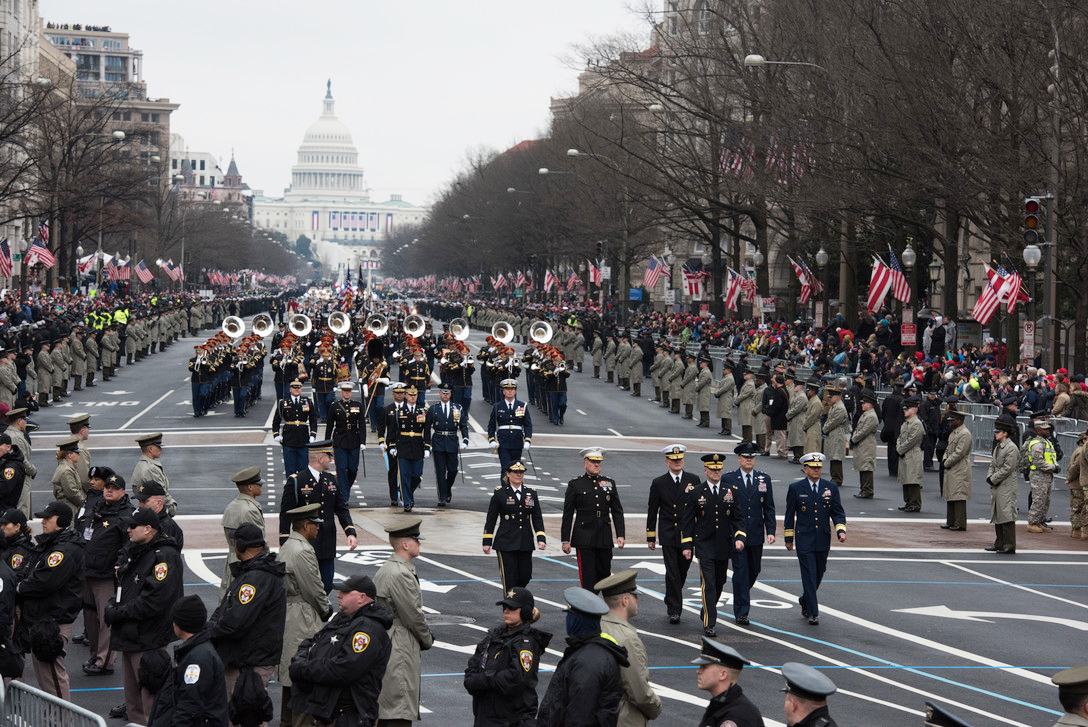
With this in mind, along with all the outrage over this supposedly uber wasteful display of military might, I do find it interesting that none of this was heard at anywhere near the frequency or amplitude when the U.S. Navy went and threw naval aviation the mother of all air parades and birthday bashes back in 2011.
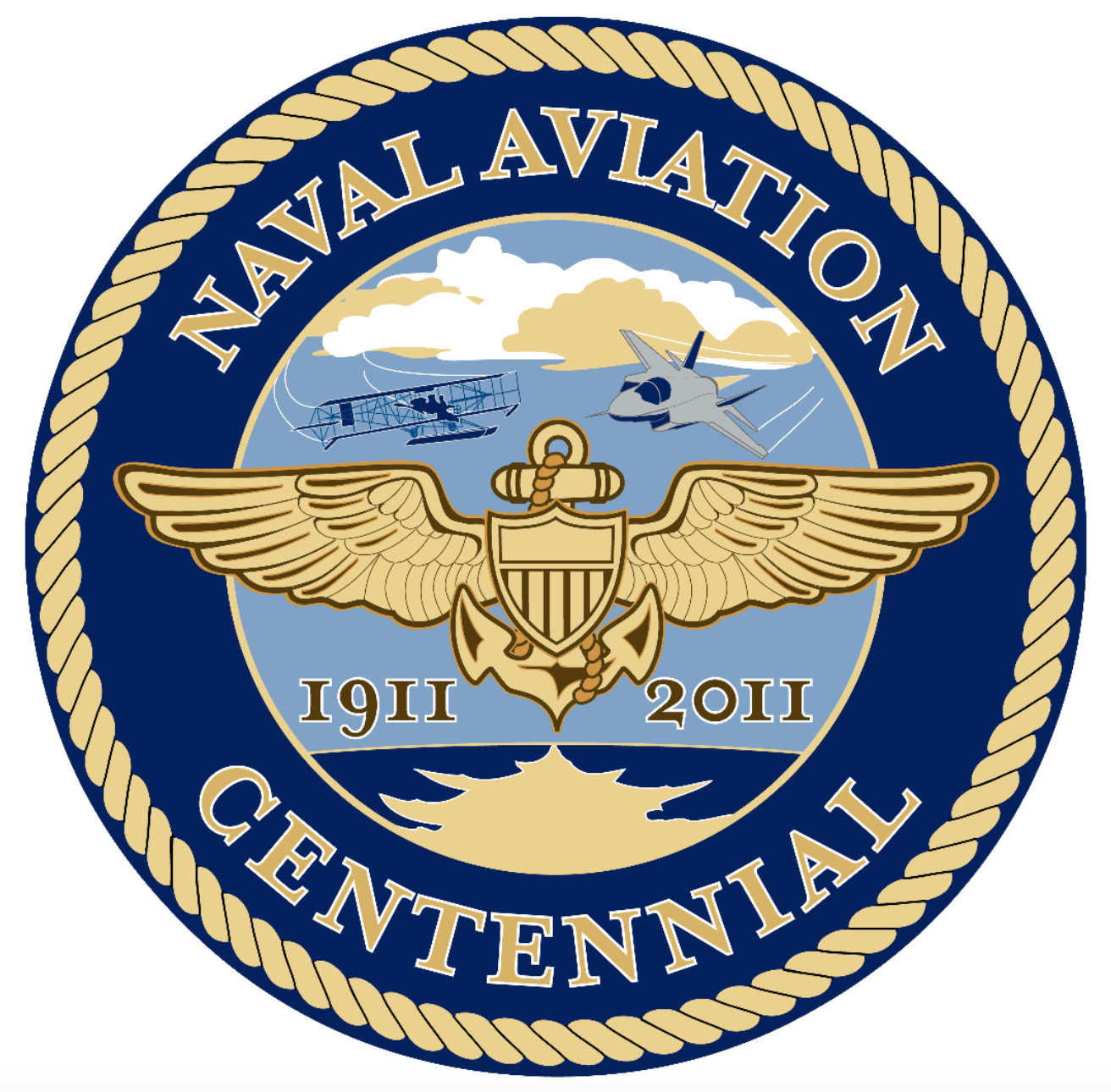
For people inside the aviation and defense space, the Centennial Of Naval Aviation (CONA) was a very exciting event that really took place in various locations in one form or another over an entire year. It included budgeting funds for most squadrons to paint a CONA aircraft in a retro paint scheme, which gave birth to some of the most striking and colorful naval aircraft that ever took to the skies.
These aircraft and literally hundreds of others would all migrate to the grand CONA bash at Naval Air Station North Island—and around the entire San Diego Bay for that matter—on February 12, 2011 for what would be a freakishly large military display that totally broke from the realities of shrinking appetites for this type of spectacle among Western Nations.
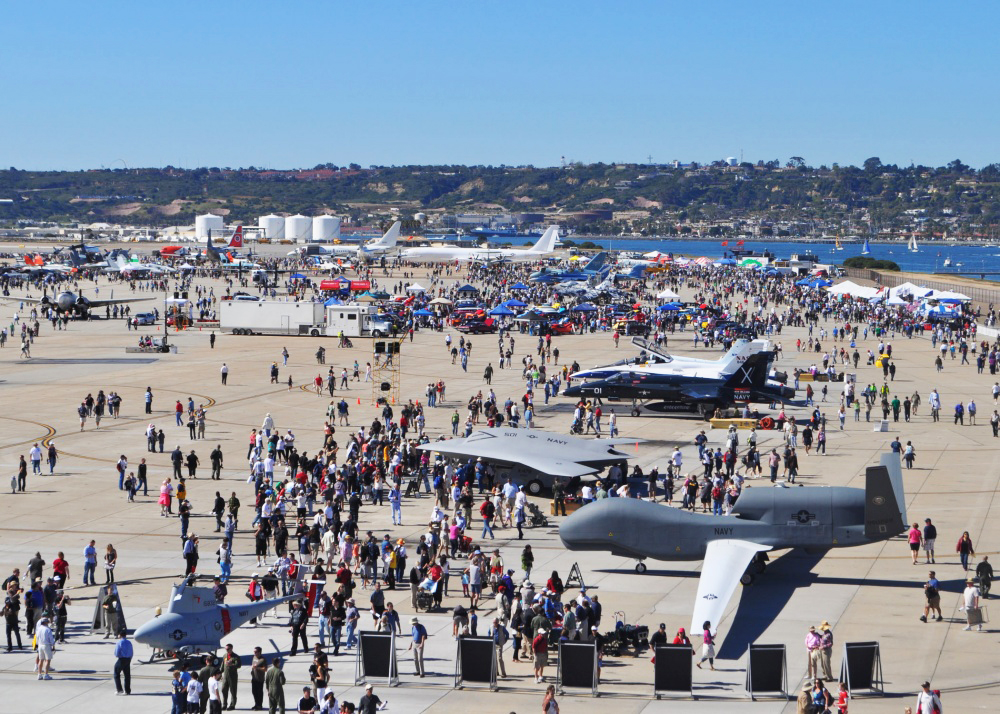
Nearly two hundred aircraft, the Blue Angels, and the vast majority of an entire carrier air wing would fly in a grand flypast. The goal was to have an example of at least one of everything still flying from throughout the Navy and Marine Corps history. Even the Coast Guard was involved. These planes ranged from vintage torpedo and scout planes to formations of current Navy and Marine fighters, helicopters, and even unique support aircraft like the E-6B Tacamo and others.
On top of this, there were flight demonstrations over the bay and all the CONA painted jets and at least one example of each current serving Navy aircraft, along with additional warbirds and more, flew into Naval Air Station North Island and were put on static display for a giant open house.
Coronado Island basically ground to a halt after months of preparations as thousands upon thousands of visitors streamed into the birthday celebration of sorts. The amphibious assault ship USS Peleliu and the supercarrier USS John C. Stennis also sailed into port to be the ultimate VIP platforms from which everyone from the Secretary of Navy down to local esteemed guest would take in the high-flying procession.
I have been intimately involved with military air shows and I can’t stress enough how much larger a scale this whole enterprise was. And I should know because I was contracted by the Navy to photograph the entire thing with full run of North Island for the week and I was set up on the Peleliu’s fantail during the flyover.
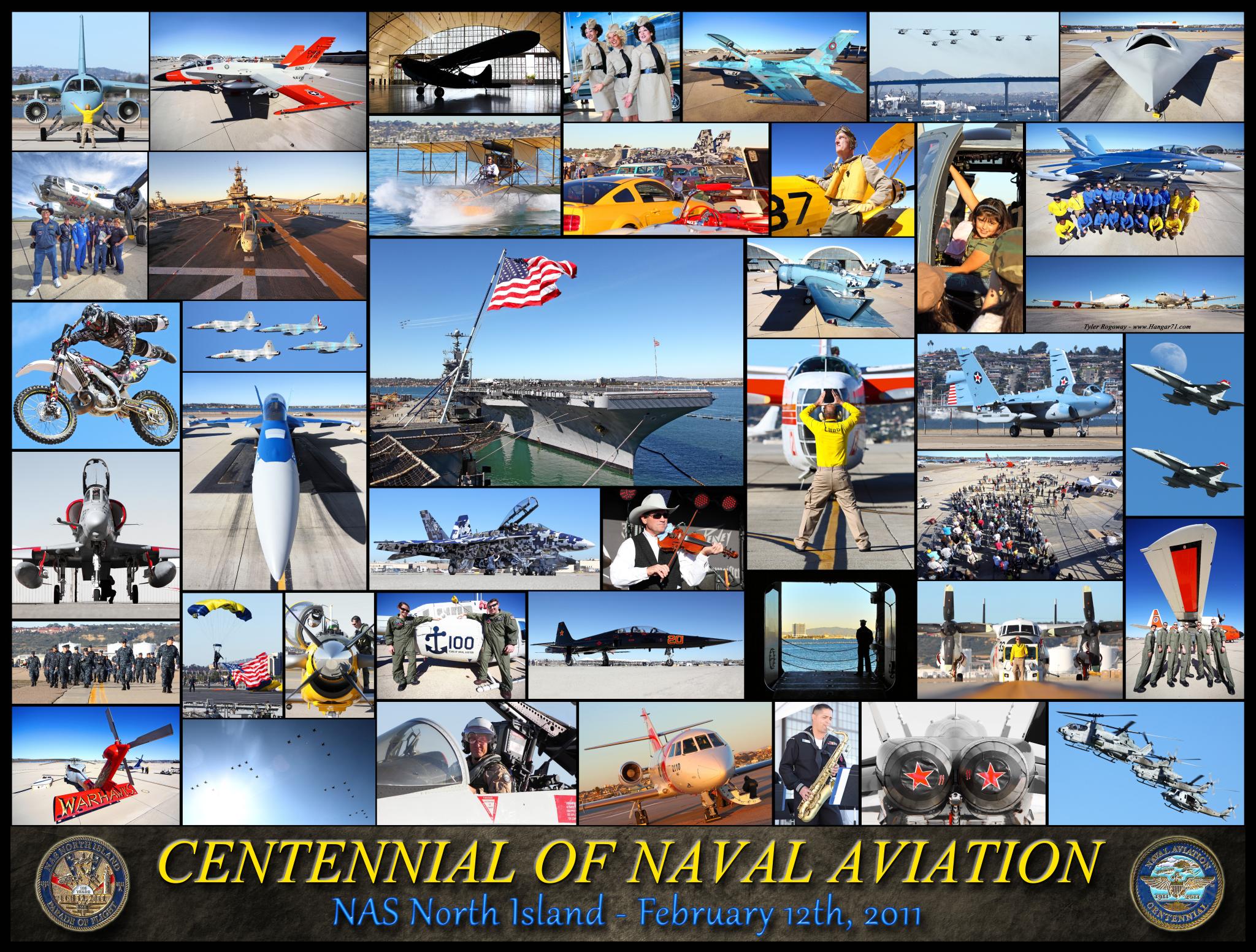
To this day I am simply stunned with how massive this spectacle was and how grossly out of place it seemed in 2011, a time when military budgets were on the skids, gear was worn down after a decade of fighting in the Middle East, and the U.S. economy was still on the rocks. At the same time, it was some of the most fun I have ever had around flying machines and military hardware and the mood was simply electric on base. What a great group of people and marvelous flying machines.
So in retrospect, I understand why the Navy did it, but to this day I have no idea how they were allowed to do it.
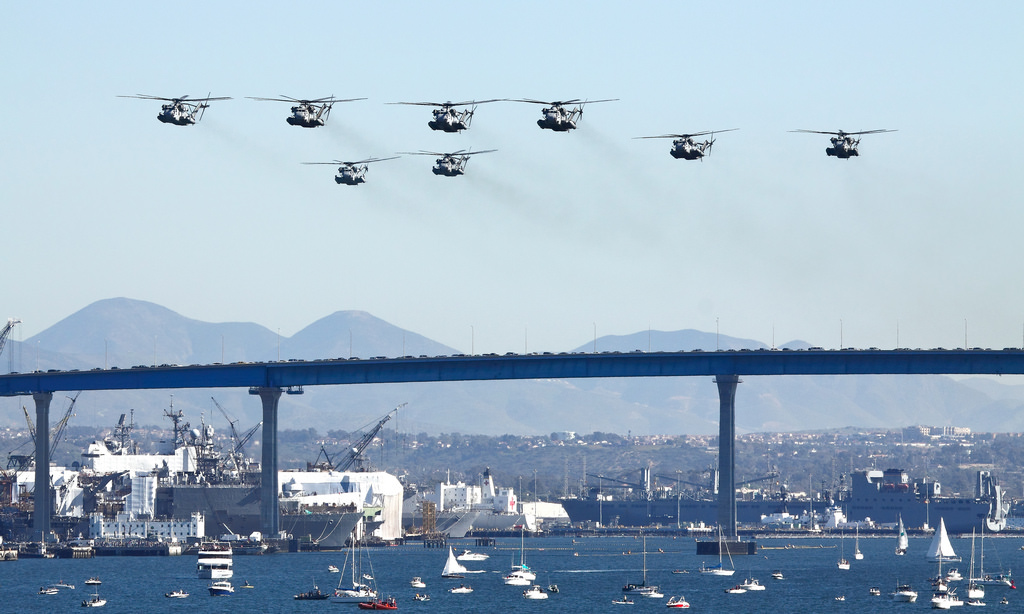
If this massive display of military might, which didn’t make anywhere near the headlines that a Washington DC military parade would, was able to be budgeted for in 2011, now, in a time of ballooning defense spending, I can’t imagine doing something similar in D.C. should be as fiscally appalling as many claim. At the same time, considering that throngs of military aircraft traveled from all over the U.S. to attend CONA, and the sheer scale of the whole thing, how was it allowed to go down with little opposition but Trump’s military parade on Veteran’s Day has resulted in such a rabid dogfight in the press and on Capitol Hill?
The answer is simple—politics.
The man demanding this event is the most polarizing figure we have ever had in the Oval Office by nearly all accounts. His autocratic tendencies and strange infatuation with military dictators doesn’t help his plight much either. But really, this whole thing seems to have been treated very uniquely because it was Trump ordering it up. And as I have stated in detail the past, there definitely is a modern precedent for a military parade in Washington DC. The last one followed the Gulf War and included Harriers landing on The Mall. That military display ran a cool $11M in back then, or $20M adjusted for inflation today.
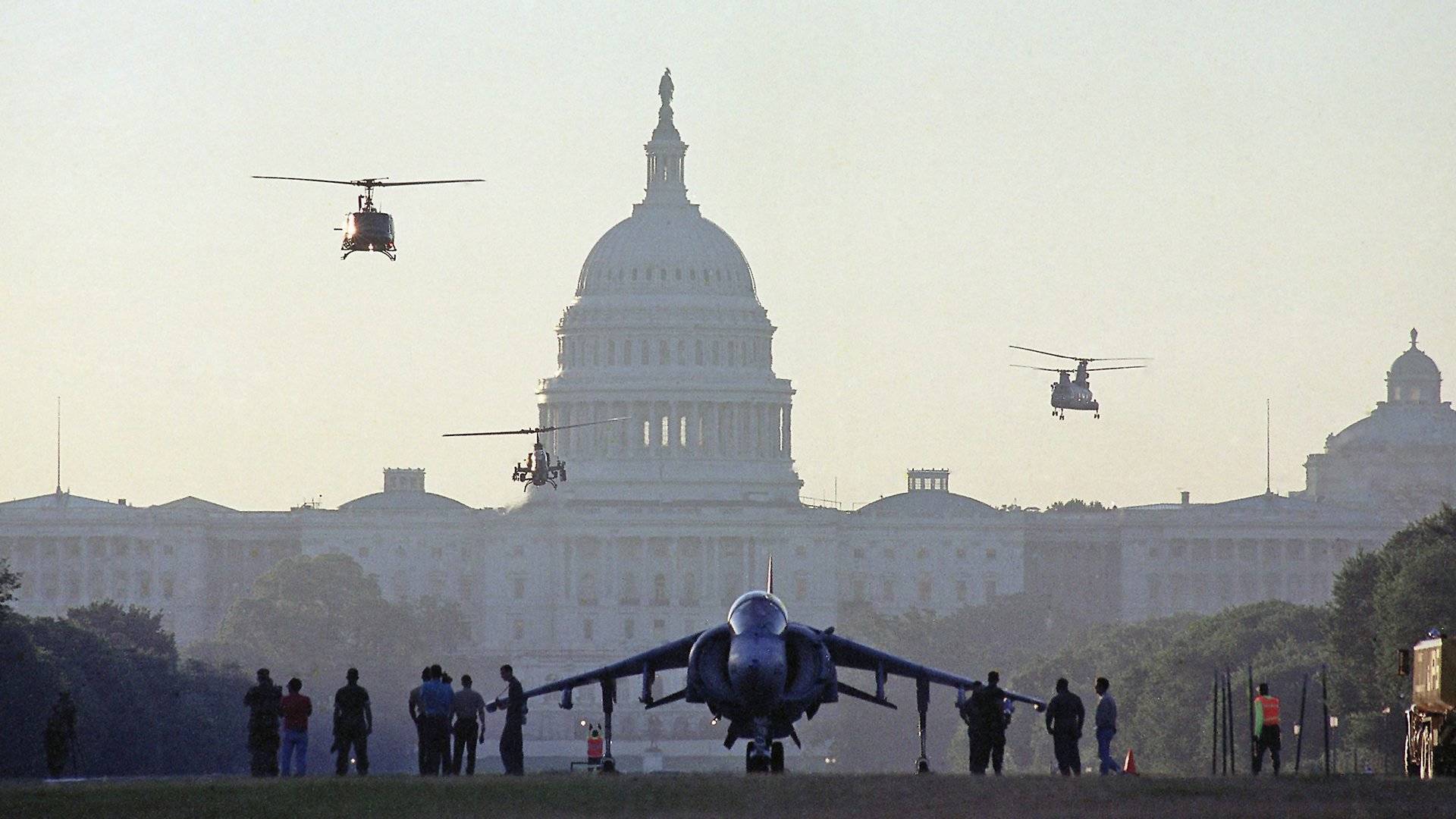
The cold hard truth is we have air shows, fleet weeks, open houses, and other events all over the United States where citizens can meet military personnel and interact with the gear they pay for with their tax contributions. We fund the Blue Angels, Thunderbirds, a slew of solo aircraft display teams, multiple jump teams, and a whole range of recruiting engagement and outreach programs. Although a military parade in Washington DC may make global news to some degree, it will likely be more for the controversy surrounding it than for its intended meaning. And as I have stated before, Trump could just beef-up the nearby Andrews AFB air show, which is one of the most prominent in the nation, attend that, and not incur the massive costs or invoke controversy by executing a military review down and above Pensylvania Avenue. The money saved could be used elsewhere, or, I don’t know, how about not spent at all?
It seems he took this advice or came to his own conclusion that this would be the best course. And that was the right decision.
But regardless, it’s laughable how little we heard in terms of fiscal outrage about the Centennial of Naval Aviation bash compared to how much we are hearing about Trump’s parade. And I can’t count how many TV pundits or writers jamming out hot-takes have posited out that Trump’s proposed military review has no precedent, which simply isn’t true.
You may dislike Trump or adore him, but these types of things should mainly fall on their own sword or succeed based on hard facts logical reasoning while also keeping historic precedent and a bit of perspective in mind. It looks like in this instance that simply wasn’t able to be the case.
So even though it’s a good thing the parade got canceled, the way it happened doesn’t seem quite fair in retrospect.
Contact the author: Tyler@thedrive.com
